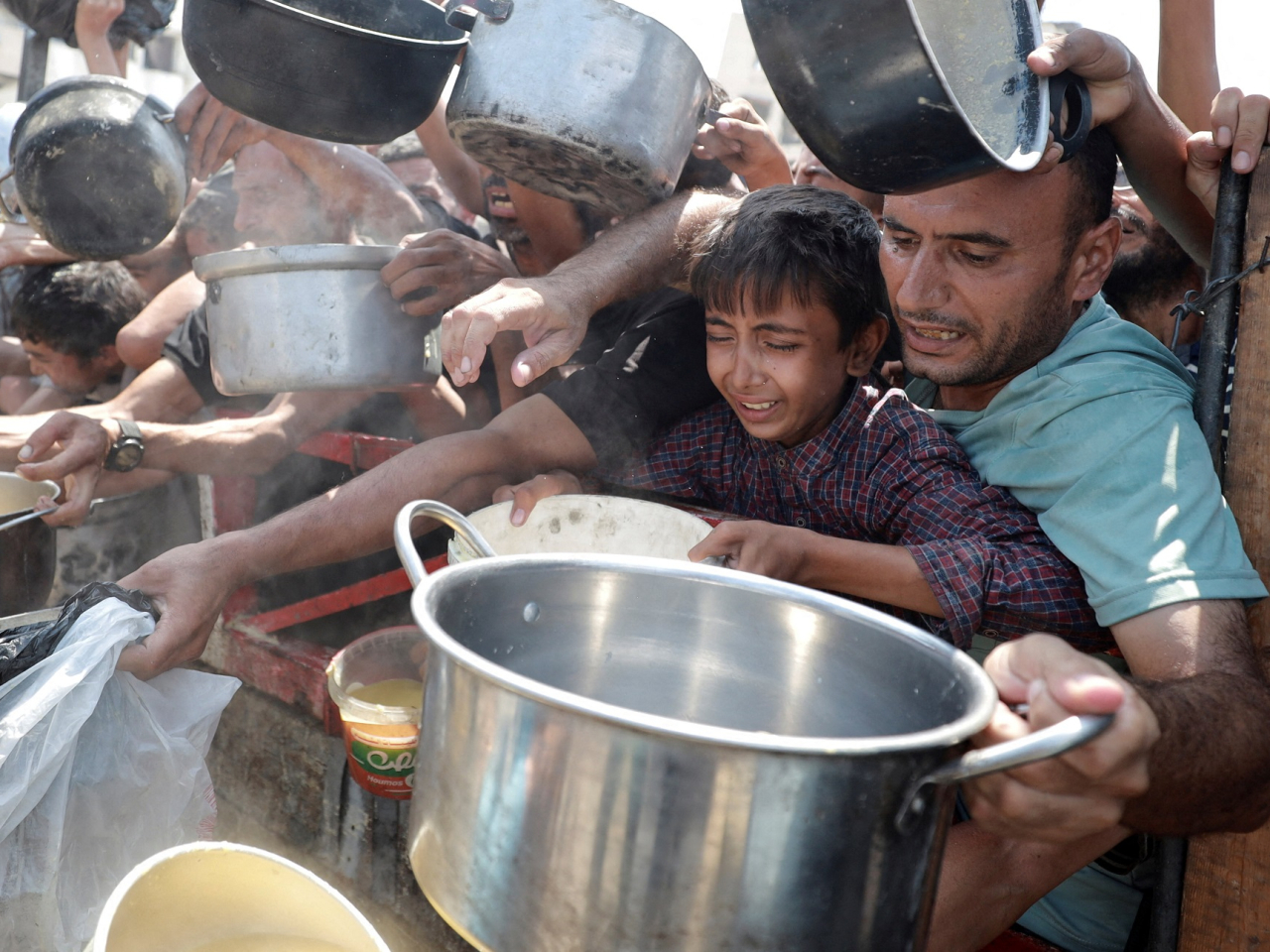Gaza is slipping into famine, UN agencies warned on Tuesday, as the health ministry in the Hamas-run territory said the Palestinian death toll in the nearly 22-month war had topped 60,000.
The World Food Programme, Unicef and the Food and Agriculture Organisation warned that time was running out and that Gaza was "on the brink of a full-scale famine".
"We need to flood Gaza with large-scale food aid, immediately and without obstruction, and keep it flowing each and every day to prevent mass starvation," WFP executive director Cindy McCain said in a joint statement from the agencies.
This week, Israel launched daily pauses in its military operations in some parts of Gaza and opened secure routes to enable UN agencies and other aid groups to distribute food in the densely populated territory of more than two million.
However, Israeli strikes continued overnight, killing 30 people in the Nuseirat refugee camp, according to Gaza's civil defence agency – experts warned a humanitarian catastrophe of historic proportions is imminent.
"The worst-case scenario of famine is now unfolding in the Gaza Strip," said the Integrated Food Security Phase Classification Initiative (IPC), a group of monitors who advise the United Nations on impending crises.
The IPC stopped short of declaring a state of famine, but made clear the situation is critical.
In a statement released ahead of the IPC report, Israeli Prime Minister Benjamin Netanyahu's office accused Hamas of distorting casualty figures and of looting food intended for civilians.
"While the situation in Gaza is difficult and Israel has been working to ensure aid delivery, Hamas benefits from attempting to fuel the perception of a humanitarian crisis," his office said.
"We already allow significant amounts of humanitarian aid into Gaza every single day, including food, water and medicine. Unfortunately, Hamas... has been stealing aid from the Gaza population, many times by shooting Palestinians."
Israel imposed a total blockade on Gaza on March 2 after ceasefire talks broke down. In late May, it began allowing a small trickle of aid to resume, amid warnings of a wave of starvation.
Then on Sunday, faced with mounting international criticism, Israel began a series of "tactical pauses" while allowing aid trucks to pass through two border crossings into Gaza, and Jordanian and Emirati planes to conduct airdrops.
Deliveries have been ramped up, but the IPC said this effort would not prove enough unless aid agencies were granted "immediate, unimpeded" humanitarian access.
"Failure to act now will result in widespread death in much of the Strip," it said, adding that 16 children under the age of five had died of hunger since July 17. (AFP)





